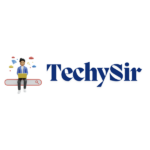Best Online Coding Courses for Beginners: A Comprehensive Guide to Start Your Coding Journey
Many people want to learn to code but don’t know where to start. With so many online coding courses available, it can be overwhelming for beginners to choose the right one. The best online coding courses for beginners provide foundational skills, hands-on practice, and support to help new learners succeed in their coding journey.

Online coding courses cater to various interests, from web development to data science. Many platforms offer beginner-friendly paths that teach essential programming languages like HTML, CSS, and Python. These courses not only focus on coding fundamentals but also provide real-world projects to enhance learning engagement.
Selecting the right course is crucial for success in coding. Beginners should look for programs that offer interactive content, community support, and a clear learning path. With the right course, anyone can develop the skills needed to embark on a rewarding career in technology.
Key Takeaways
- Foundational coding skills are essential for beginners.
- Hands-on practice through projects enriches the learning experience.
- Choosing the right online course can chart a successful coding career.
Understanding Coding Fundamentals
Coding fundamentals lay the groundwork for becoming a proficient programmer. This knowledge includes key programming principles, popular languages, and essential tools used by coders. Mastering these areas is crucial for anyone starting their coding journey.
Programming Principles and Logic
Programming is based on several core principles. Algorithms are step-by-step procedures for calculations and data processing. They help in solving problems effectively. Another key concept is data structures, which organize and store data efficiently. Common examples include arrays, lists, and trees.
Variables store information that a program can manipulate. A variable can hold different types of data like numbers or text. Functions are blocks of code designed to perform a specific task. They improve code reusability and make programs easier to read and maintain.
Understanding these principles helps coders think logically about how to write effective code.
Introduction to Common Programming Languages
Various programming languages cater to different needs and preferences. For beginners, Python is an excellent choice due to its clear syntax and versatility. It is widely used in web development, automation, and data analysis.
Java is another popular language, known for its portability across different platforms. It is used in enterprise applications and Android app development.
JavaScript is essential for web development, allowing developers to create interactive features on websites. Understanding these languages provides a solid foundation for any programmer.
Coding Environments and Tools
Choosing the right coding environment is vital for beginners. An Integrated Development Environment (IDE) helps in writing and testing code efficiently. Popular IDEs like Visual Studio Code and PyCharm offer helpful features like syntax highlighting and debugging tools.
Additionally, version control systems like Git allow developers to track changes in their code over time. This makes collaboration easier on software projects.
Resources like online coding platforms also provide interactive environments for practice. Mastering these tools supports a smooth coding experience and encourages learning.
Choosing the Right Coding Course
Selecting the appropriate coding course can significantly impact a learner’s success. Different pathways cater to specific interests and career goals. It is essential for beginners to find courses that align with their objectives and skill levels. Below are key pathways for beginners.
Coding for Web Development
Web development courses focus on building websites and web applications. Beginners can start with HTML, CSS, and JavaScript. These languages form the foundation of web development.
Recommended Platforms:
- Codecademy: Interactive lessons that cover basic to advanced topics.
- Coursera: Offers courses from universities, often including practical assignments.
Courses can vary in length:
- Shorter courses might take less than 2 hours for basics.
- More comprehensive ones can span 3-6 months for full-stack development.
Successful web developers often know frameworks like React or Angular as they progress.
Data Science and Machine Learning Pathways
Courses in data science and machine learning teach how to analyze and visualize data. Beginners should start with Python and R, as they are popular in this field.
Key Elements:
- Statistics and basic algorithms are crucial.
- Hands-on projects help solidify understanding.
Recommended Platforms:
- Udemy: Offers a range of affordable courses with practical applications.
- Khan Academy: Free resources overviewing mathematics and programming basics.
Typical course lengths for beginners range from 1-3 months for introductory lessons to 4-6 months for specialized topics.
Software Engineering and Computer Programming
Software engineering courses cover programming languages and software development principles. Beginners often benefit from starting with languages such as Java or C++.
Important Skills:
- Problem-solving and algorithm design.
- Understanding software development life cycles.
Recommended Platforms:
- Coursera: Offers structured programs from universities.
- Udemy: Provides various options based on user ratings and reviews.
Course completion can take 1-4 weeks for basic programming to 1-4 years for degree programs. It is essential for learners to identify their focus to select the right courses and paths.
Language-Specific Programming Courses

Many online courses focus on specific programming languages. Beginners can easily find structured lessons that help build foundational skills in popular languages like Python, Java, JavaScript, C, and C++. Each language has unique features and is suited for different types of projects.
Python Programming for Beginners
Python is widely regarded as an excellent starting language due to its readability and simplicity. Courses often cover key concepts such as:
- Variables and Data Types: Understanding how to store and manipulate data.
- Control Structures: Learning about loops and conditional statements.
- Functions: Creating reusable code blocks.
Platforms like freeCodeCamp offer comprehensive tutorials, while Georgia Tech provides an audit-friendly course that dives deep into Python fundamentals. This is ideal for those who want to learn programming in a practical environment.
Java and JavaScript Essentials
Java is known for its portability and performance, making it a strong choice for enterprise applications. Courses usually include:
- Object-Oriented Programming (OOP): Key to Java development.
- API Usage: Understanding and using libraries to streamline coding tasks.
JavaScript, on the other hand, is essential for web development. It allows for:
- Dynamic Content: Making websites interactive.
- DOM Manipulation: Altering web pages on the fly.
Both languages have numerous beginner-friendly courses available, like those on Coursera, that ensure a solid grasp of their essentials.
Understanding C and C++ Programming
C programming is foundational and lays the groundwork for many modern languages. It offers:
- Memory Management: Manual control over system memory.
- Efficiency: Fast execution, making it ideal for system programming.
C++ builds on C with object-oriented features, offering:
- Class and Object Creation: Essential for modern software applications.
- Advanced Data Structures: Greater flexibility in handling data.
Courses in C and C++ are available on platforms like Coursera and are suited for beginners wanting a deeper understanding of programming concepts.
Developing Problem-Solving Skills
Building problem-solving skills is key for beginners in coding. These skills help to navigate challenges and improve programming abilities. Three essential areas to explore are algorithms and computational logic, critical thinking in coding, and the role of mathematics in programming.
Algorithms and Computational Logic
Algorithms are step-by-step procedures for solving problems. They allow coders to break down tasks into smaller, manageable parts. For example, sorting a list of names can be done using various algorithms, such as bubble sort or quicksort.
Understanding computational logic is also crucial. It involves reasoning systematically to formulate solutions. Coders utilize flowcharts and pseudocode to visualize their approaches. This understanding helps in making decisions and predicting outcomes in code.
Critical Thinking in Coding
Critical thinking is vital for successful coding. It allows programmers to evaluate problems before jumping into coding solutions. Questioning assumptions is an important part of this process.
In coding, critical thinking involves analyzing requirements carefully. For instance, understanding user needs can lead to better design choices. Additionally, debugging requires thinking logically about what went wrong and how to fix it. This skill nurtures a mindset that leads to effective problem-solving.
Mathematics and Coding
Mathematics provides a foundation for many coding concepts. Basic math concepts, like addition and multiplication, are essential in programming. More advanced topics such as graph theory can also play a role in solving complex coding challenges.
In coding, mathematical logic helps in creating algorithms. For instance, understanding how to calculate the shortest path in a graph is a practical application of graph theory. Being comfortable with math can enhance coding skills and open up opportunities in data science and software development.
Building and Managing Coding Projects

Effective coding projects require clear organization, collaboration, and proper version control. Understanding tools and practices is essential for managing the project lifecycle and enhancing coding skills.
Version Control with Git and GitHub
Git is a tool that tracks changes in code over time. It allows a developer to save different versions of a project. With Git, they can easily revert to previous versions if needed.
GitHub serves as a platform for hosting Git repositories online. It enables developers to share their code with others. This creates opportunities to collaborate on projects, even when team members are in different locations.
Incorporating Git into a workflow helps maintain order in projects. It is crucial for anyone aiming to become a software developer. Learning to use Git and GitHub is a key step in the coding journey.
Collaboration and Coding in Teams
Working in a team adds complexity to coding projects. Developers must communicate effectively and manage their contributions to the project. Using tools like GitHub enhances collaboration by providing features like pull requests.
Pull requests allow team members to review changes before merging them into the main codebase. This ensures that everyone is on the same page. Pair programming is another practice that can enhance teamwork. In this method, two developers work together at one workstation, improving code quality and learning outcomes.
Establishing coding standards within a team can lead to cleaner code and fewer bugs. Adopting tools for issue tracking and project management can also streamline the development process.
Project Documentation and Code Quality
Effective documentation is critical in coding projects. It includes README files, comments within the code, and user guides. Documentation helps team members understand the project’s purpose and how to use different features.
Good documentation can reduce the learning curve for new team members. By following consistent documentation practices, project maintainability is enhanced.
Code quality is equally important. It refers to how well code is written and how easily it can be understood and maintained. Utilizing tools for code analysis can help maintain high standards. Developers can regularly review code and refactor when necessary. This practice not only improves functionality but also promotes better coding skills.
Learning Through Hands-on Coding Practice

Engaging in hands-on coding practice is essential for beginners who want to learn programming effectively. Practical experience reinforces theoretical knowledge and builds confidence. The following methods enhance coding skills through active participation.
Code Along and Interactive Learning Platforms
Platforms like Codecademy and Scrimba offer interactive coding lessons where users can code alongside tutorials. This approach allows beginners to practice coding in real-time, making it easier to grasp concepts.
Students learn to solve problems while receiving instant feedback. This immediate response helps them correct mistakes and understand the coding process. Moreover, these platforms often include fun projects that encourage experimentation and creativity, enhancing engagement.
Working on Real-World Projects
Real-world projects provide invaluable experience. Sites such as Coursera Project Network allow beginners to work on actual projects that companies might use.
By contributing to tangible projects, learners gain practical coding skills. They learn to apply programming concepts in meaningful ways, preparing them for future job opportunities. Working on real-world applications also fosters problem-solving skills, which are crucial in the tech industry.
Participating in Coding Challenges and Competitions
Joining coding challenges through platforms like CodeChef and HackerRank can accelerate skill development. These competitions encourage learners to solve problems under time constraints, mimicking real-life scenarios.
Not only do such coding challenges improve technical skills, but they also build resilience and creativity. Performance in competitions can be showcased on resumes, adding an edge when applying for coding classes or degrees.
By engaging in these activities, beginners systematically develop their coding expertise while enhancing their confidence in programming.
Specialized Programming Skills
A variety of specialized programming skills can significantly enhance a beginner’s ability to create engaging and effective applications. Mastering these skills opens new opportunities in fields like web design, data analysis, and artificial intelligence.
Web Design and User Experience
Web design focuses on creating visually appealing and functional websites. Essential skills include understanding HTML and CSS, which are critical for structuring and styling web pages.
Key Areas in Web Design:
- Responsive Design: Creating layouts that work on various devices.
- User Experience (UX) Design: Understanding how users interact with websites helps in making them more intuitive.
Tools like Adobe XD and Figma can aid in designing interactive prototypes. Knowledge of user experience design principles ensures the website meets user needs.
Understanding Data Visualization
Data visualization involves presenting data in graphical formats to enhance understanding. Learning skills like using software tools can enable beginners to tell stories with data effectively.
Important Tools and Concepts:
- Software: Tableau and Microsoft Power BI are popular for creating visual reports.
- Graph Types: Understanding which graphs, charts, or maps to use based on the data can guide users in their decision-making.
Strong visualization skills can help in fields like business analytics and marketing, making complex data accessible and actionable.
Artificial Intelligence and Advanced Computing
Artificial intelligence (AI) is transforming many sectors, making it an important area of study. Beginners can start with foundational skills in programming languages like Python, widely used for AI applications.
Core Concepts to Explore:
- Machine Learning: A subset of AI where algorithms learn from data.
- Natural Language Processing (NLP): Understanding and generating human language.
Courses focusing on AI often use frameworks like TensorFlow or PyTorch. Gaining proficiency in these areas can equip beginners with valuable skills for future tech careers.
Enriching Your Learning Path
Enhancing a coding learning journey involves tapping into online communities, considering advanced courses, and obtaining professional certifications. These elements provide valuable insights and help learners grow their skills effectively.
Online Communities and Forums
Engaging with online communities and forums can significantly enrich the learning experience. Platforms like Stack Overflow and GitHub allow learners to ask questions, share projects, and gain feedback from peers and experienced developers.
Benefits of participation include:
- Networking Opportunities: Connecting with like-minded learners and professionals.
- Problem-Solving: Finding answers to specific coding challenges shared by others.
- Resource Sharing: Access to tutorials, tools, and helpful articles from experienced coders.
Communities also host meetups and webinars, expanding knowledge beyond structured courses.
Advanced Courses and Specializations
Once foundational skills are established, exploring advanced courses and specializations can deepen understanding. Several respected online platforms offer these options.
Examples of advanced courses include:
- HarvardX CS50: A rigorous introduction to computer science fundamentals.
- Google’s IT Automation with Python: Focuses on using Python for automation tasks.
These courses often cover specialized topics like machine learning, web development, or data science. Learning in these areas can make a resume more attractive.
Acquiring Professional Certificates
Professional certificates can boost career prospects significantly. Many online platforms provide certifications that validate coding skills.
For instance, programs from universities like Duke or UC Santa Cruz offer certificates in Python and C++. LinkedIn also showcases these credentials, enhancing visibility to potential employers.
Key points to consider:
- Recognized Certifications: Certificates from reputable institutions add value.
- Career Advancement: Certifications can lead to higher-paying job opportunities.
- Personal Growth: Gaining certifications builds confidence and knowledge.
Pursuing these certificates reflects commitment to professional development and continuous learning.
Charting Your Career in Coding

Starting a career in coding involves learning essential programming skills and exploring various job opportunities. With the right training, one can transition from education to employment in fields such as software development and information technology.
From Learning to Earning
Many coding courses are designed to help beginners gain solid programming skills. For instance, courses like “Python for Everybody” focus on practical applications and real-life projects.
Upon completion of these courses, students can seek internships or entry-level positions. These roles often include software developer, web developer, or IT support. The key is to apply the concepts learned in the classroom to real-world challenges.
Job Search Tip: Utilize platforms like LinkedIn or Indeed to find coding jobs tailored for beginners. This can help in securing a position sooner.
Exploring Career Opportunities as a Developer
The job market for coders is diverse and expanding. Developers can work in various sectors, including healthcare, finance, and entertainment.
Some common roles include:
- Frontend Developer: Focuses on the visual aspects of websites.
- Backend Developer: Works on server-side logic and databases.
- Full Stack Developer: Combines both frontend and backend skills.
The demand for software developers continues to grow, making it a promising field. Prospective coders should stay updated on industry trends and emerging technologies to enhance their prospects.
Building a Portfolio and Gaining Experience
Creating a portfolio is essential for beginners entering the coding field. It showcases skills and projects, which can impress potential employers.
Projects can be small applications, code snippets, or even contributions to open-source software. Participating in coding challenges or hackathons can also provide valuable experience and improve problem-solving skills.
Portfolio Essentials:
- Include personal projects that demonstrate coding skills.
- Share code on platforms like GitHub for visibility.
- Seek feedback from peers to improve.
By taking these steps, aspiring coders can build a strong foundation for a successful career in software development and related fields.
Frequently Asked Questions

This section addresses common queries about online coding courses for beginners. It covers platforms offering certifications, free resources, and how to choose the right course based on individual needs.
Which platforms offer the best online coding courses for beginners with certifications?
Several platforms provide high-quality coding courses that include certifications. Websites like Coursera, edX, and Udacity offer beginner-friendly courses with certifications from respected institutions. These certifications can enhance a beginner’s resume and show proficiency to potential employers.
What are the top free coding courses for beginners available online?
Free coding courses are accessible on platforms like Codecademy, freeCodeCamp, and Khan Academy. These resources cover programming languages such as Python, JavaScript, and HTML. They are ideal for those who want to start coding without financial commitment.
How can beginners choose the right coding course for their needs?
Beginners should assess their goals, interests, and preferred learning style. They can look for courses that cover specific languages or technologies they want to learn. Reading reviews and checking course descriptions helps ensure the chosen course aligns with their learning objectives.
What are the benefits of taking online coding courses with certificates for beginners?
Courses with certificates can improve job prospects and provide proof of skills. Beginners can showcase their knowledge to employers, making them more competitive in the job market. Additionally, the structured learning from these courses often helps retain information better.
Are there any coding courses for beginners that prioritize practical experience?
Many online coding courses focus on practical experience through projects and hands-on assignments. Platforms like Udacity and Coursera often include project-based learning, allowing beginners to apply their skills in real-world scenarios. This practical approach enhances learning and builds confidence.
What factors should be considered when selecting an online programming course for beginners?
Beginners should consider the course content, instructor qualifications, and course format. They should ensure that the course is suitable for their skill level and includes interactive elements like quizzes or forums. Also, it is helpful to look at the support offered to students during their learning journey.






Post Comment